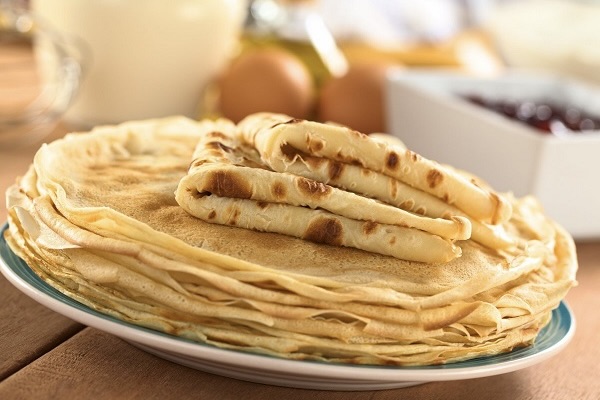 Credit: Shutterstock
Credit: Shutterstock
In 2025, Tuesday 4 March represents Shrove Tuesday and marks the day before the Christian religious observance of Lent and its tradition of fasting, or, in more modern observation, the abstention from "something" for the period up until Easter Sunday (18 April 2025).
Based on the old English word "shriven", meaning to confess to or absolve one of their sins, Shrove Tuesday became a day for Christians to head to their church to receive absolution. The day itself never falls on the same calendar day every year and is calculated as being exactly 47 days before Easter Sunday, which itself is based on the varying cycles on the moon. Shrove Tuesday can ultimately fall on any Tuesday between 3 February and 9 March inclusive.
With its religious roots, Shrove Tuesday, also represents the end of Carnival, a festive season still observed across the Christian world. In Luxembourg, this culminates with the fires of Buergbrennen and officially ends on Ash Wednesday, when people in Remich burn an effigy of winter ("Stréimännchen" - straw man - more on this below) on the bridge over the Moselle.
Elsewhere it is referred to as Mardi Gras (Fat Tuesday), and is named as such due to the tradition of consuming all of one’s more luxurious foods before the abstinence period of Lent, ensuring they would not go to waste. However, today, the most popular form of observance of Shrove Tuesday in the UK, Ireland (where it is known as "Máirt Inide") and parts of the Commonwealth is undoubtably the tradition of consuming pancakes.
The association with pancakes stretches back to the 15th century when the day was traditionally a half-day holiday marked by the mid-morning ringing of church bells to signal that the locals should head to their church and begin their observance of the festival. The story goes that one housewife in Olney, England, was so busy making pancakes that she did not realise the time to go to church was approaching and, when the bells rang, she ran to the church with her frying pan in hand, tossing the pancake as she went to ensure it did not burn. To this day, every year the women of Olney celebrate Shrove Tuesday by donning their aprons and competing in a pancake flipping race.
In Ireland, it was a tradition that the eldest unmarried daughter of the family would toss the first pancake. If the pancake fell on the floor, she would remain unmarried for the next twelve months. In Luxembourg, the tradition was for men to go around their village collecting the eggs, flour and fat which would be used to make the pancakes ("paangecher"), as well as other delicacies. While in the evening, straw men ("Stréimännchen") would be burned to as a symbolic gesture to exorcise the sins committed during the excess of the preceding days of Carnival. A tradition which dates back to before the festival of Buergbrennen.
The history of the pancake itself dates back thousands of years, with early forms appearing in historical texts detailing the Greek and Roman empires. Back then they were made with a simple batter consisting of flour, water and, occasionally eggs, which was cooked on a hot griddle. They were often sweetened with honey, a favoured topping even to this day.
Today, pancake fillings and toppings have moved beyond the simplicity of just honey or sugar and may consist of chocolate spread, fresh fruits, cream, ice cream or custard. There is also the alternative of more savoury options, with the pancake taking on the role of flatbread, pitta and tortillas; being stuffed with all manner of combinations of meat, vegetables and cheese.
Whilst one should not expect anyone to repeat the athletic antics of the ladies of Olney, there is no need to abstain from celebrating the historical value and diversity of the humble pancake, be it through the preparation and cooking or simply by enjoying them with whatever filling one desires. Fully embrace the tradition by saving the abstinence for tomorrow.
SM








